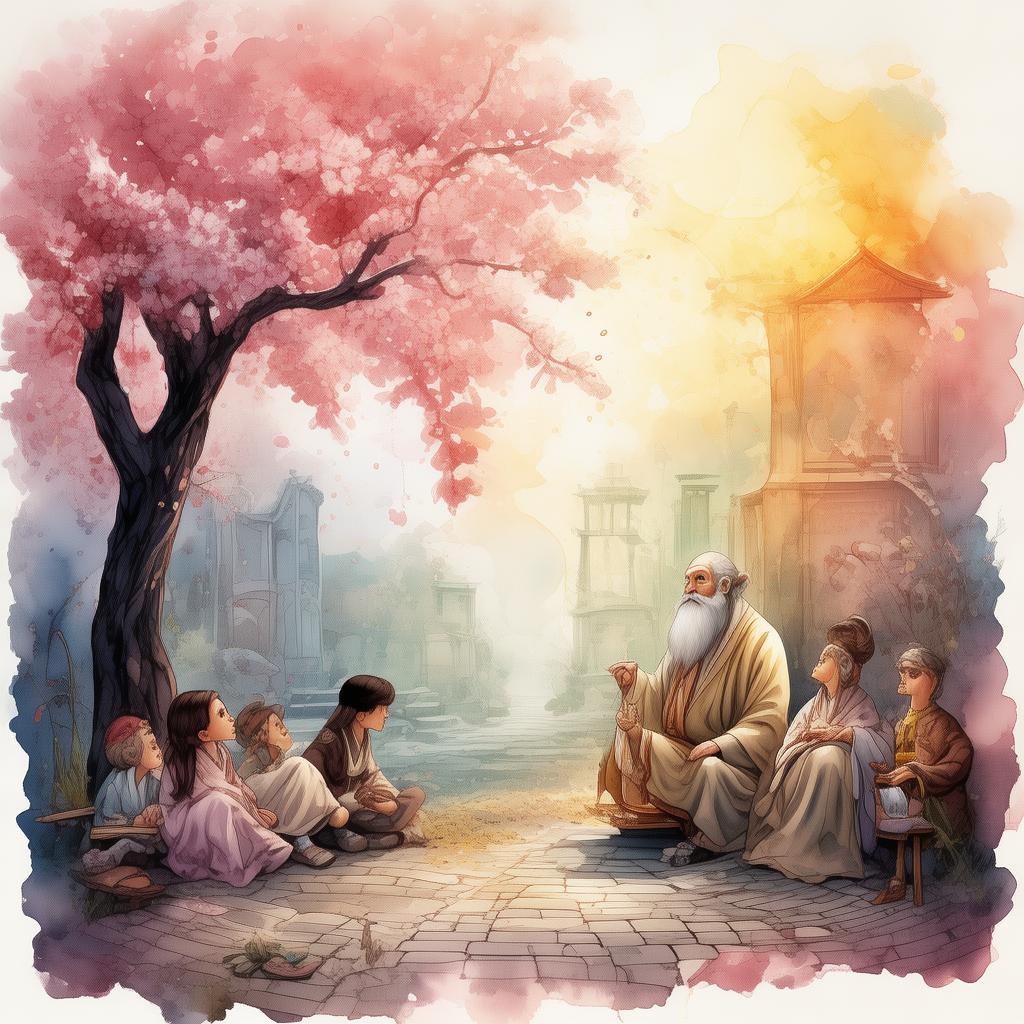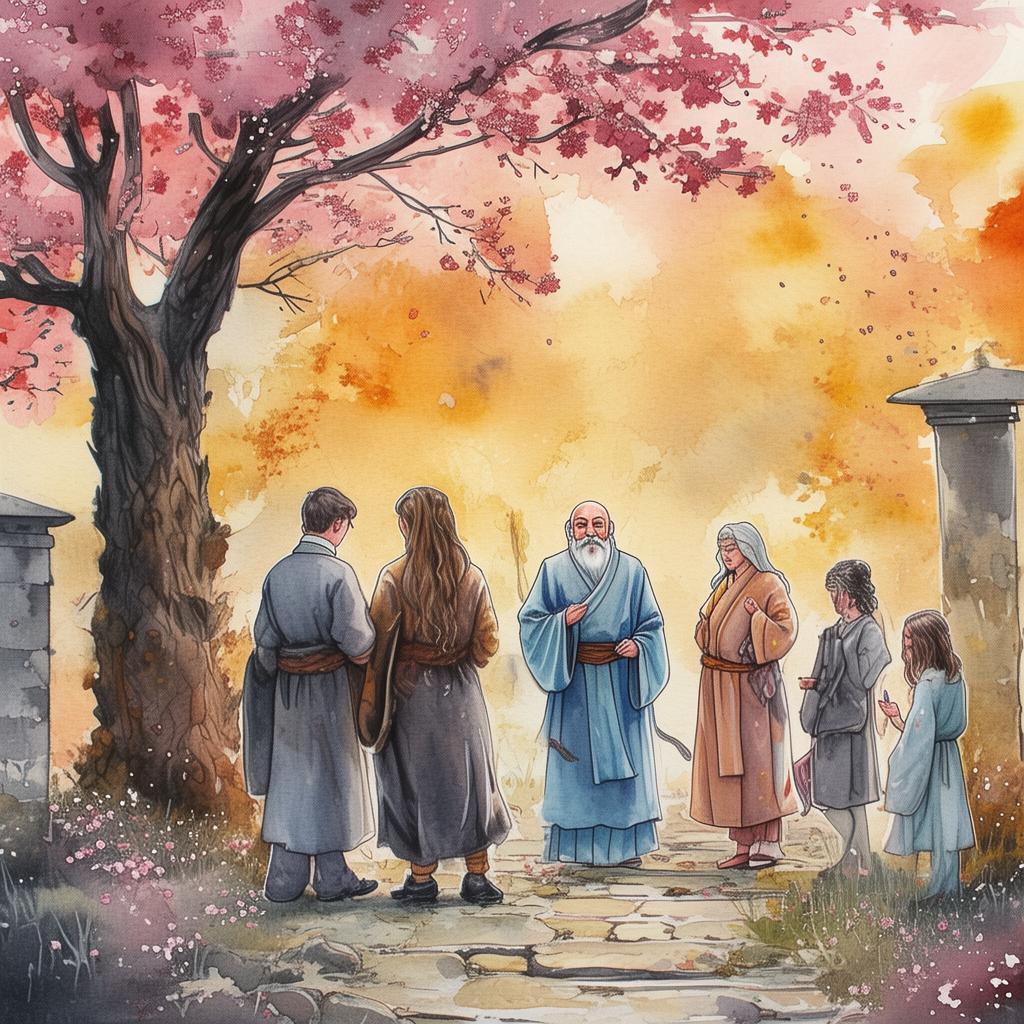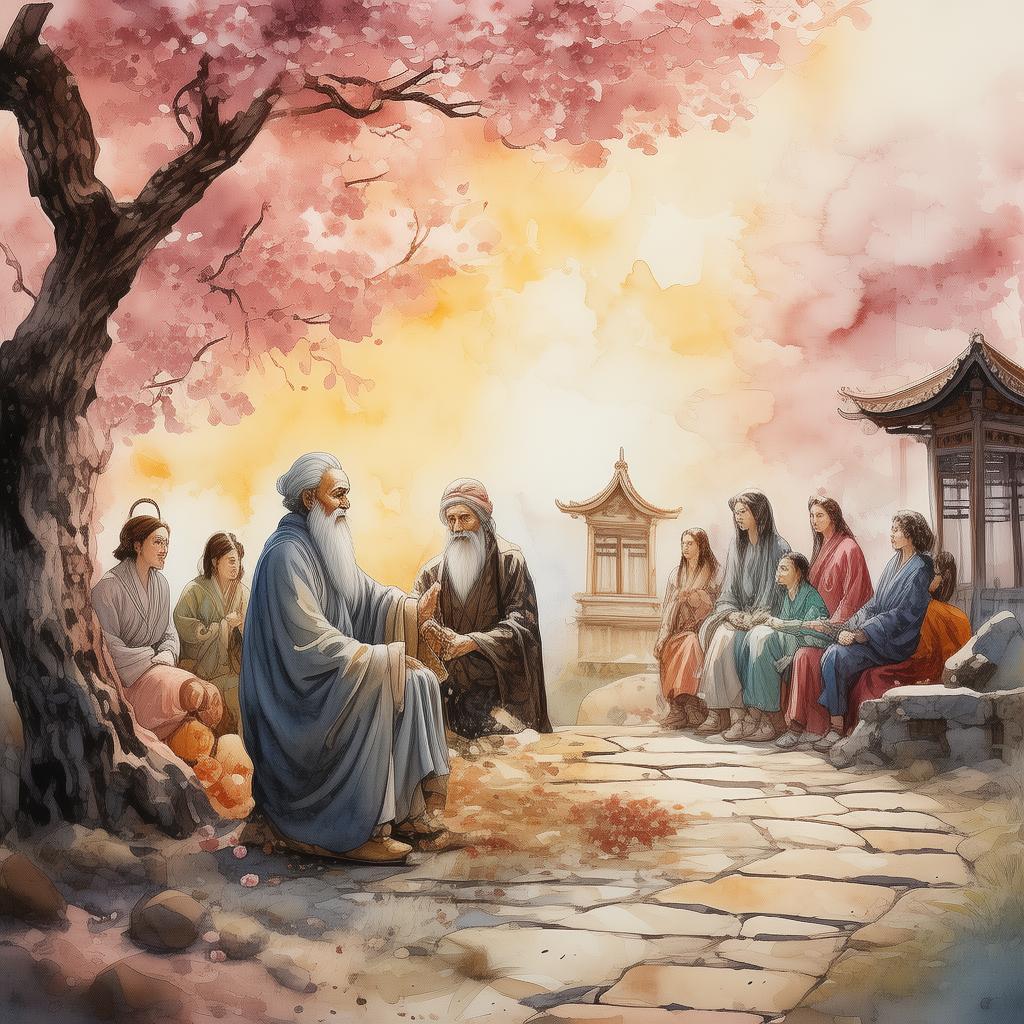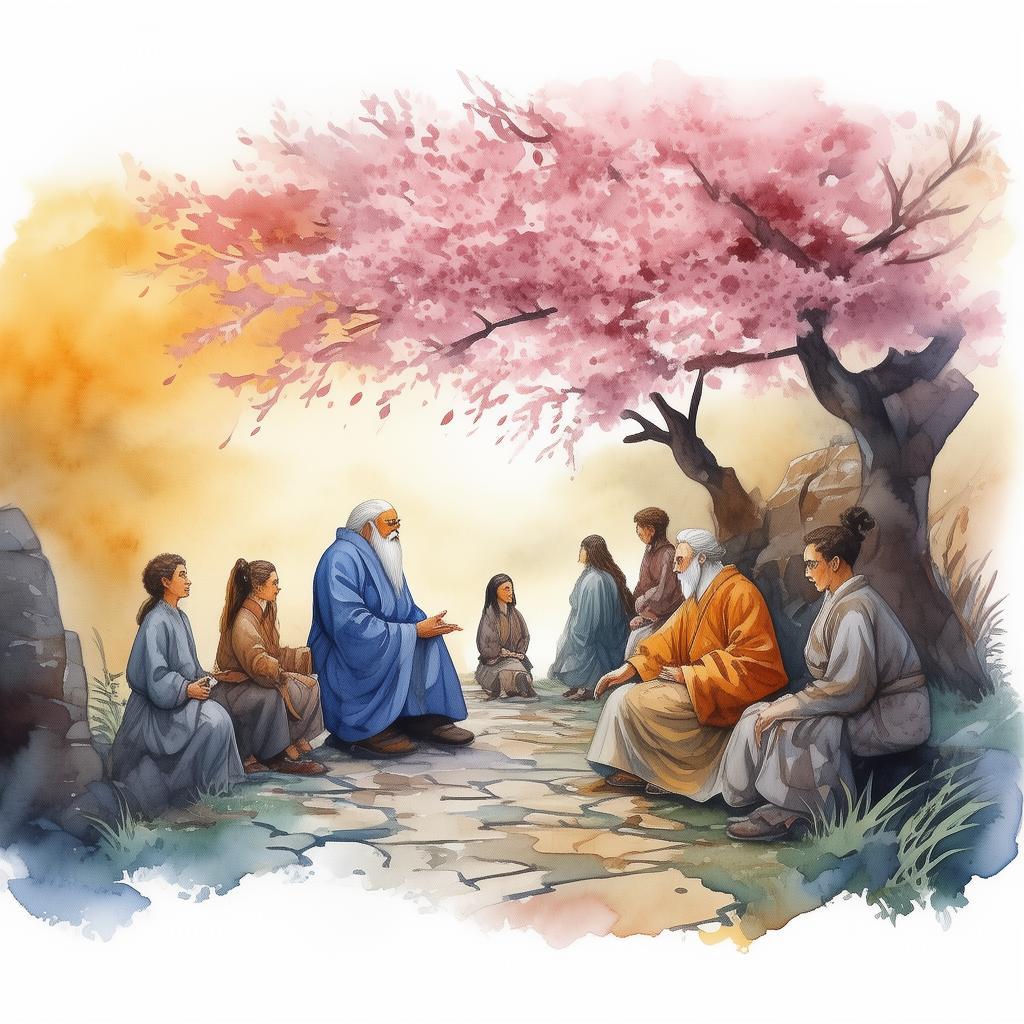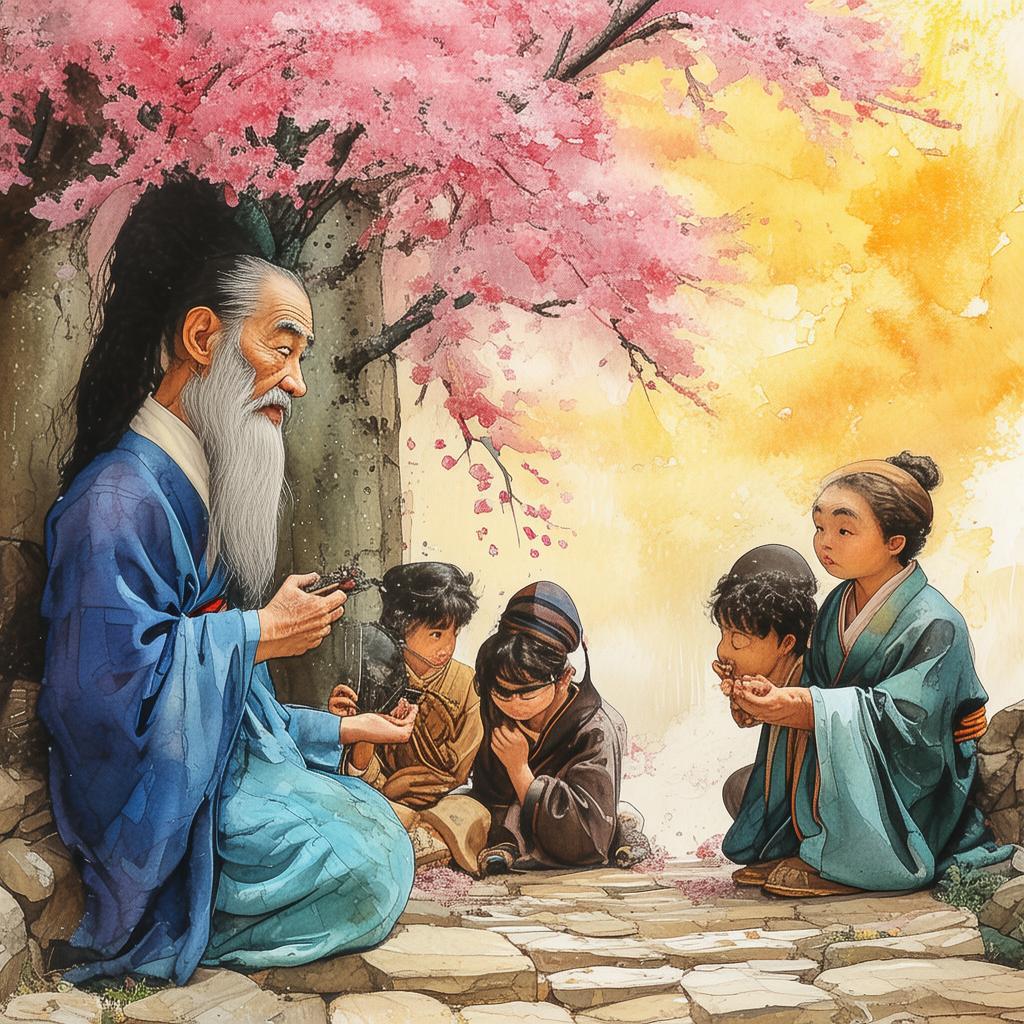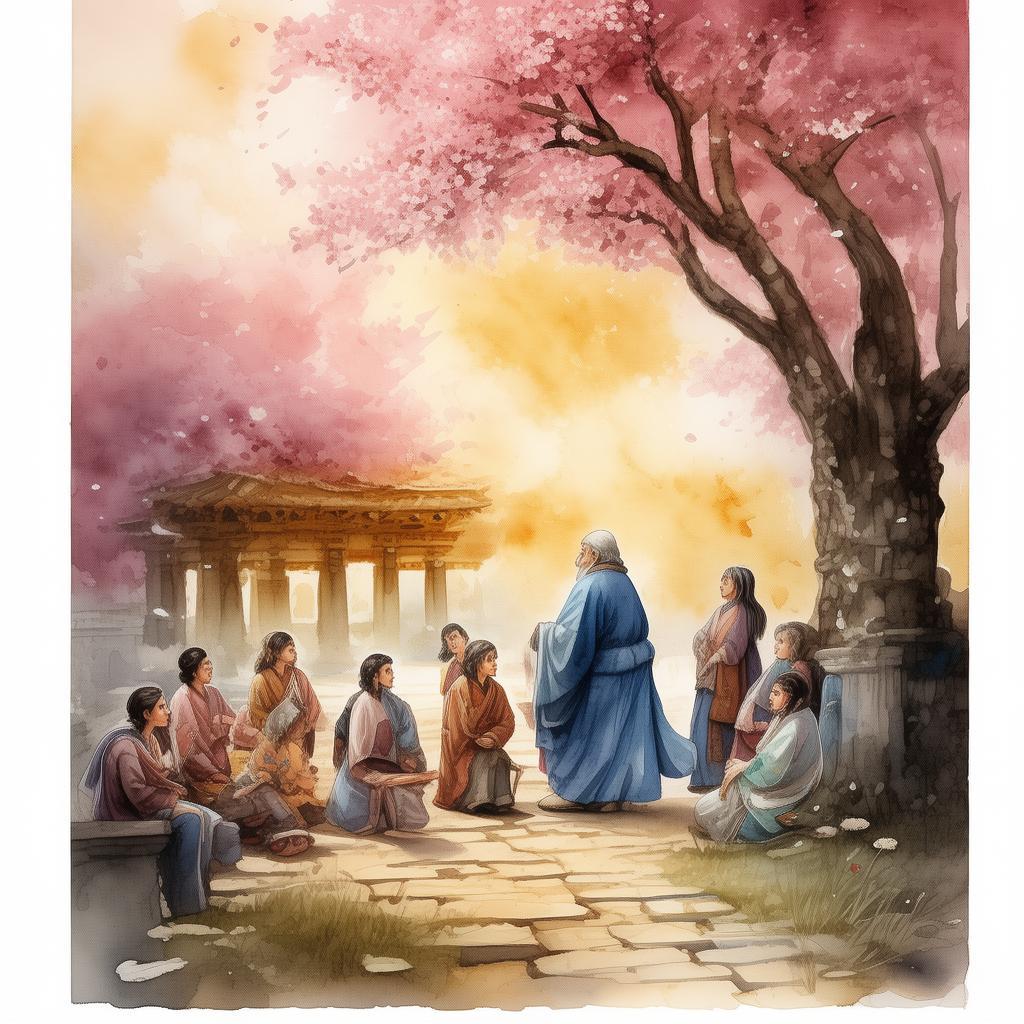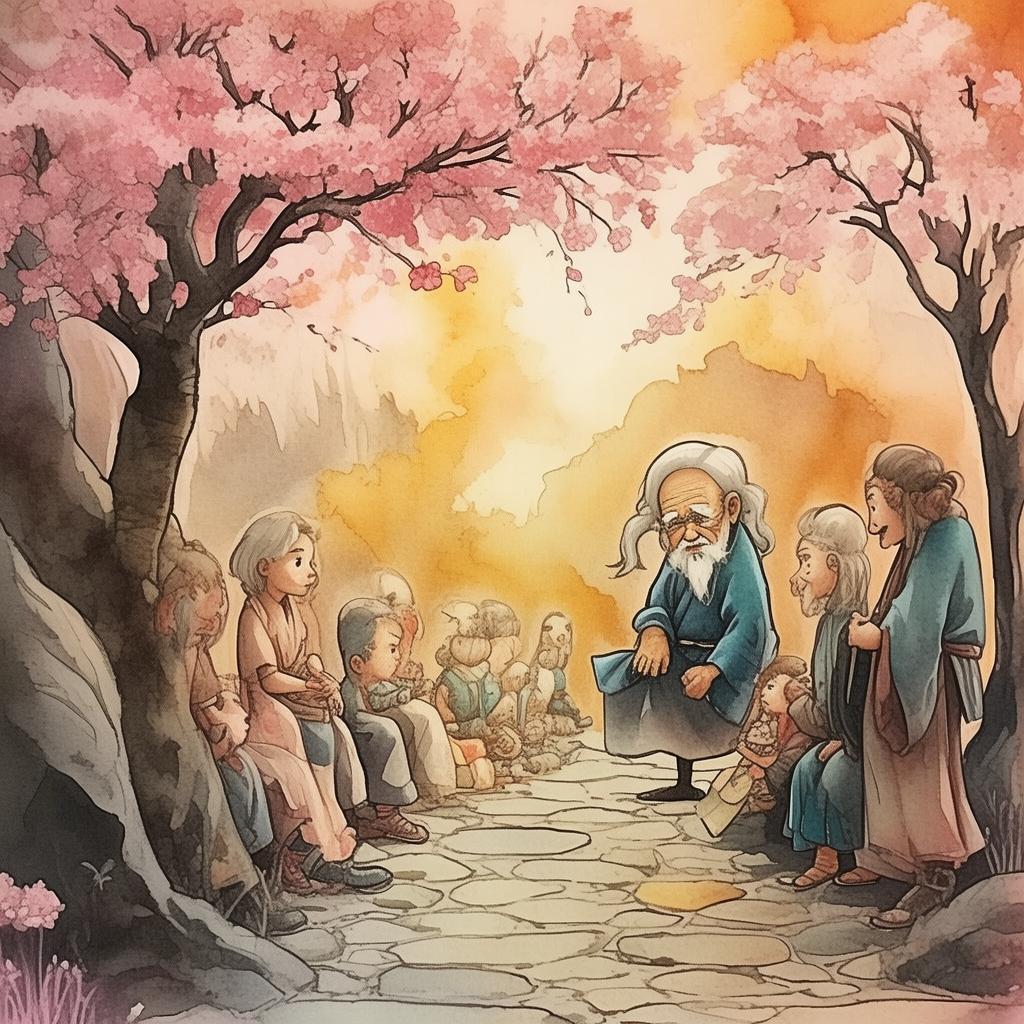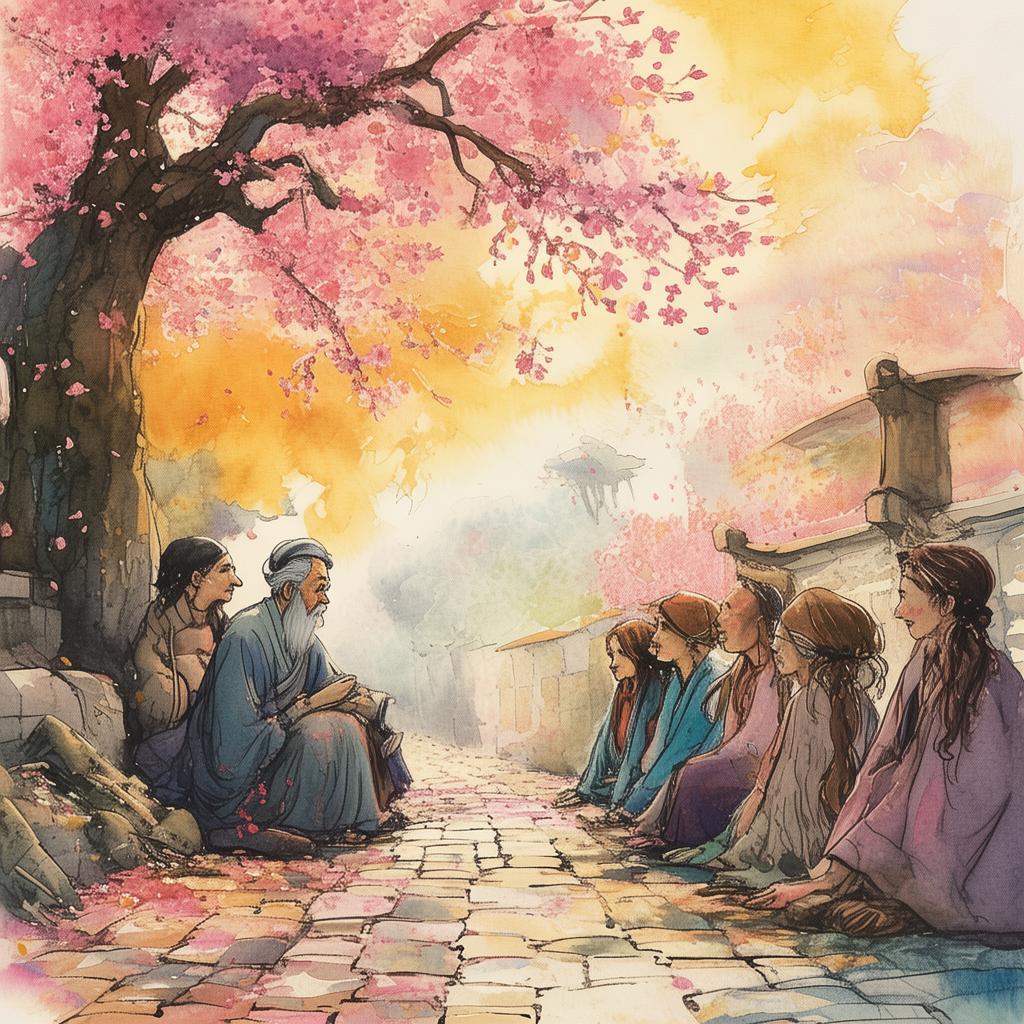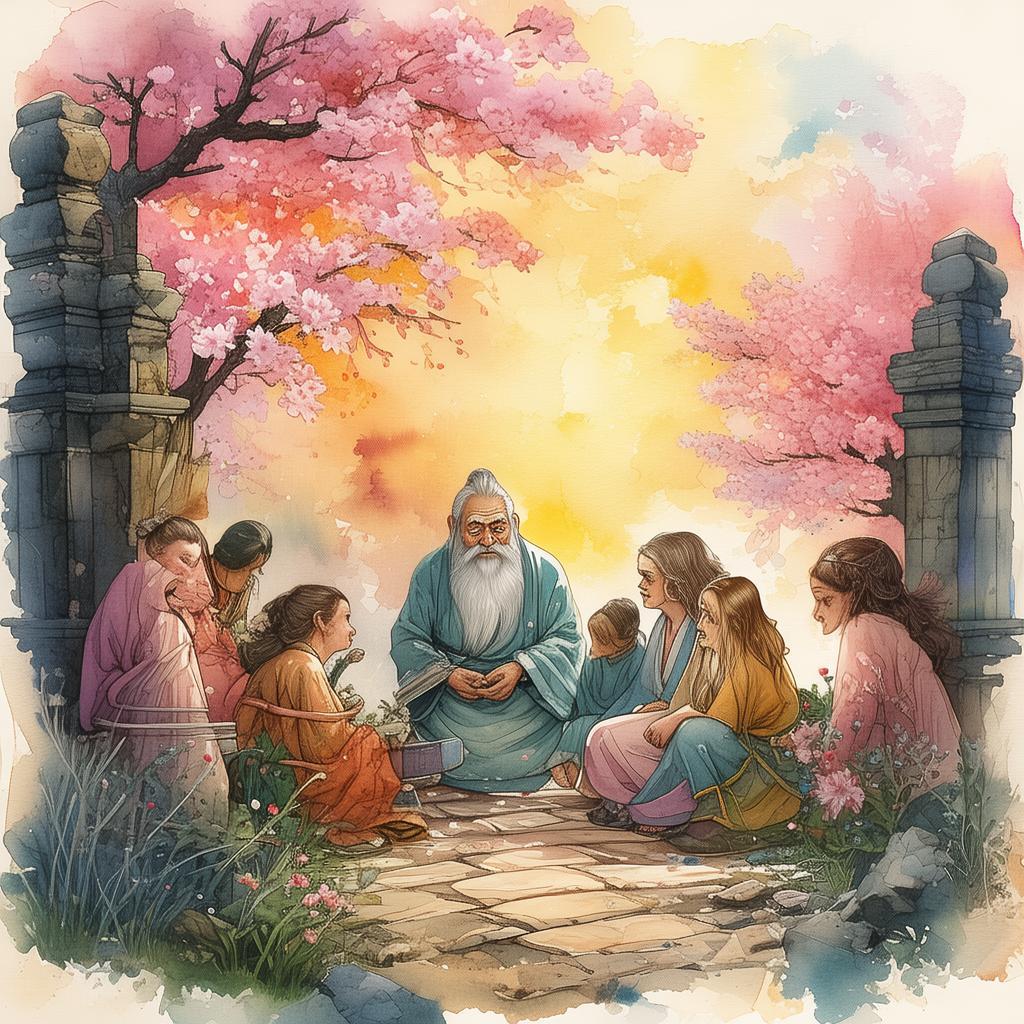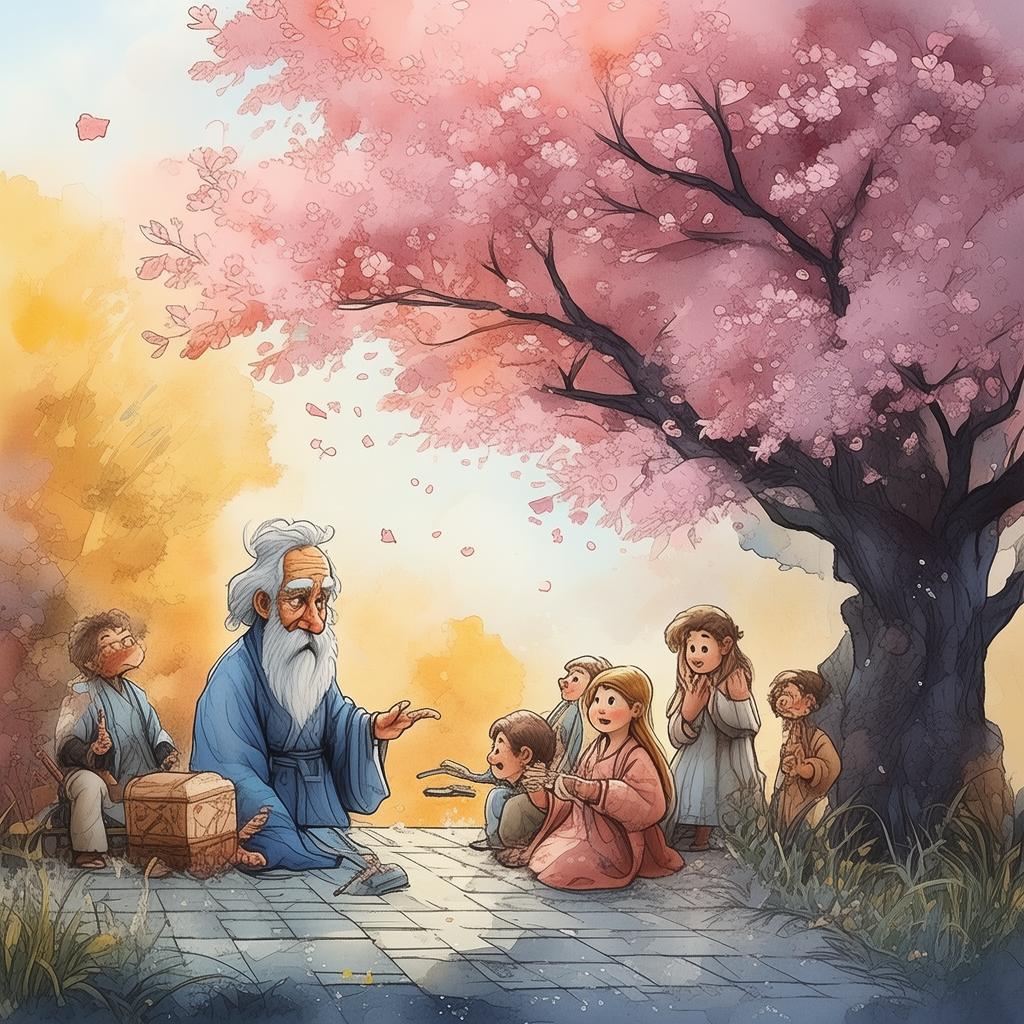The Labyrinth of the Mind: A Soul's Reckoning
In the heart of an ancient temple, nestled within the folds of time, there lay a mysterious chessboard. It was said that upon this board, the soul's journey was played out, a game of life and death, of enlightenment and obscurity. In the land of the mystics, where the veil between the material and the ethereal was thin, there was a tale that would become legendary: The Labyrinth of the Mind: A Soul's Reckoning.
In the days of old, there was a young mystic named Li. Li was a seeker of truth, a wanderer in the realm of the mind. He had heard tales of the chessboard of the mystics, a device said to hold the secrets of the soul. Driven by an insatiable curiosity, Li embarked on a quest to uncover the truth behind this enigmatic board.
Li's journey took him to the temple, where he was greeted by an ancient guardian. "You seek the chessboard of the mystics?" the guardian's voice echoed through the stone corridors. "Know this: only those pure of heart and strong of mind can play upon it. For the game is not merely a game of chess; it is a game of the soul."
Undeterred by the guardian's warning, Li approached the chessboard. It was ornate, with pieces carved from the bones of ancient creatures, their eyes glowing with an eerie light. The guardian placed a single pawn in the center of the board, and Li felt a strange sensation course through his veins, as if his very essence was being drawn into the game.
The first move was simple enough—a pawn moved forward. But as the game progressed, Li found himself ensnared in a web of psychological warfare. His opponent was not a human, but the embodiment of his own innermost fears and desires. Each move on the board mirrored his own thoughts, his own decisions, his own soul laid bare for all to see.
Li's opponent, a shadowy figure, seemed to anticipate his every move. The game became a battle of wills, a test of his resolve. "You seek enlightenment," the shadow whispered, "but can you truly face your own darkness?"
The game grew more complex, each piece representing a different aspect of Li's psyche. A knight symbolized his ambition, a bishop his wisdom, a rook his power. Yet, as the pieces moved, they also revealed the vulnerabilities within Li. His ambition became greed, his wisdom clouded by pride, and his power corrupted by ambition.
In the midst of the chaos, Li found himself facing a pivotal decision. He could choose to continue the game, to challenge the shadowy figure and confront his own inner demons, or he could retreat, to shun the light and embrace the darkness within.
The choice was clear: he must face his innermost fears, confront his own flaws, and strive for enlightenment. With a deep breath, Li resolved to play on, to use the game as a mirror to his soul.
As the game reached its climax, Li's opponent became more aggressive, pushing him to the brink of madness. The pieces moved faster, the moves more daring, and Li found himself struggling to keep pace. The shadowy figure seemed to taunt him, "You think you can win? You think you can face the darkness within and emerge unscathed?"
Li's heart raced, his mind a whirlwind of thoughts. But he remembered the guardian's words, the journey of the soul. He focused on his breath, on the present moment, and with a surge of determination, he made his move.
The game reached its zenith as Li and his shadowy opponent engaged in a fierce battle. Each move was a confrontation with his own soul, a battle against his deepest fears and desires. The pieces clashed, the board became a canvas of chaos, and Li found himself at the mercy of his own will.
Finally, with the last move, Li's opponent fell silent. The board was still, the pieces in place. Li looked down and felt a sense of clarity wash over him. He had won, not through sheer force or cunning, but through the power of his own mind.
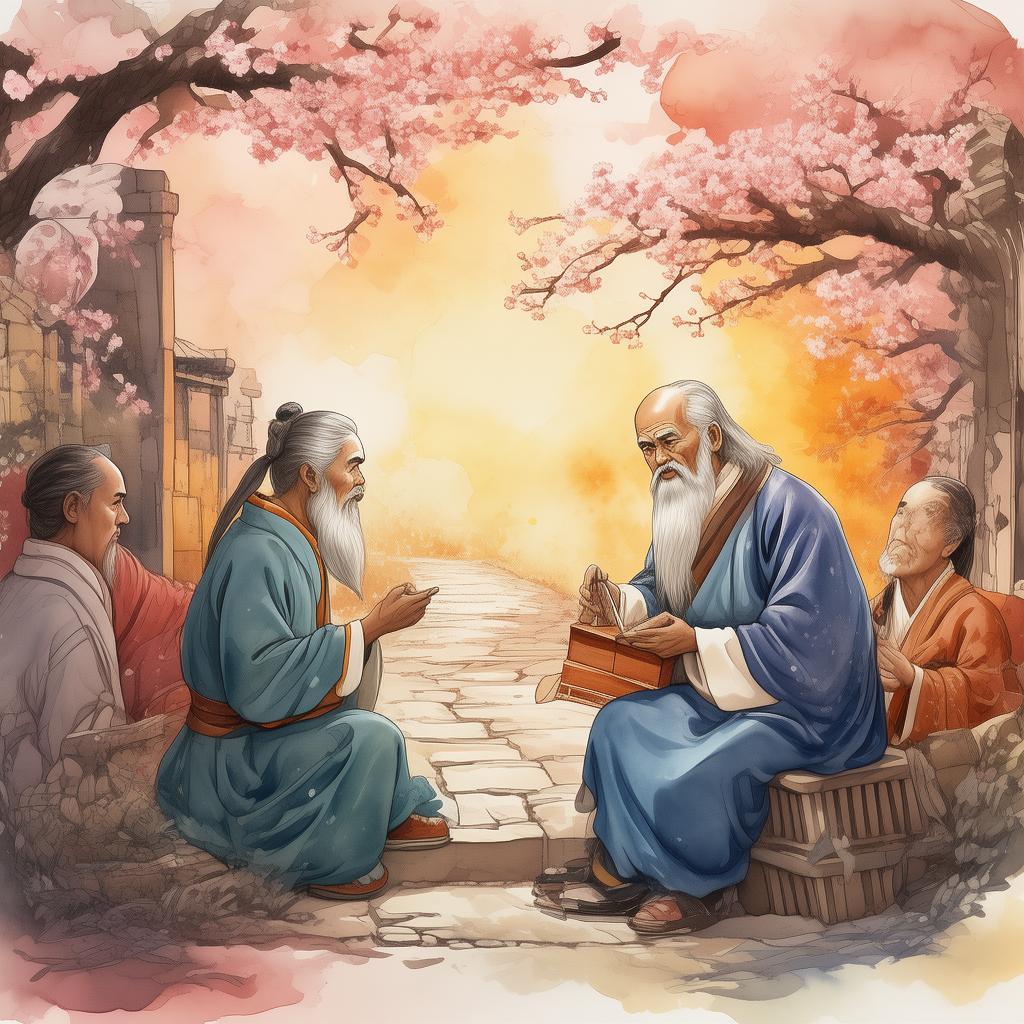
The guardian approached the chessboard, his eyes reflecting the wisdom of ages. "You have faced your soul and emerged victorious," he said. "The game of the mystics is not a game of chess, but a journey of the soul. You have found enlightenment, not through the board, but through your own inner strength."
Li left the temple, a changed man. He had faced the labyrinth of his mind, the chessboard of the soul, and had emerged not just as a winner, but as a seeker of truth. The game of the mystics had shown him that enlightenment was not a destination, but a journey, a continuous battle against the darkness within.
The tale of Li and the chessboard of the mystics spread far and wide, a testament to the power of the human spirit and the quest for enlightenment. And so, the Labyrinth of the Mind: A Soul's Reckoning became a legend, a story that would inspire seekers of truth for generations to come.
✨ Original Statement ✨
All articles published on this website (including but not limited to text, images, videos, and other content) are original or authorized for reposting and are protected by relevant laws. Without the explicit written permission of this website, no individual or organization may copy, modify, repost, or use the content for commercial purposes.
If you need to quote or cooperate, please contact this site for authorization. We reserve the right to pursue legal responsibility for any unauthorized use.
Hereby declared.
